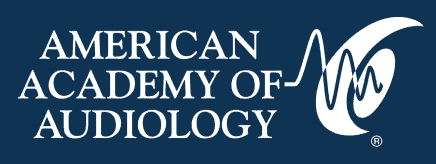Overview
To expose students who are interested in research or wishing to pursue a career in research to a stimulating research environment under the guidance of a mentor. The fellowship period lasts ten to twelve weeks, giving the grant recipient sufficient time in the mentor’s lab to participate in ongoing research projects or to contribute substantially to a single project. The grant is intended to provide support to undergraduate students planning to enroll in a doctoral program to pursue a terminal research degree (i.e., PhD, ScD) or to graduate students currently enrolled in a program who plan to pursue a research doctorate in audiology or hearing science. This grant is not intended to provide funds for clinical practicum experiences or clinical work unless the clinical delivery of services is directly applicable to the research project. Submissions may be made in the following categories:
- General Audiology/Hearing Science
- Vestibular
Eligibility Requirements
The Research Grants in Hearing & Balance Program: Student Summer Research Fellowship Guidelines outline eligibility, the application process, and more.
- Undergraduate student interested in pursuing a research doctorate in audiology or hearing science;
- Graduate student who is currently enrolled in a research doctoral program in audiology or hearing science;
- Graduate student who is enrolled in an AuD program with plans to pursue a research doctorate degree in audiology or hearing science.
Additional Eligibility Criterion
- Must commit to working full time in the mentor's lab for a minimum of ten weeks, uninterrupted (longer placements are certainly encouraged if they can be accommodated by both the grant recipient and the mentor).
How to Apply
The 2022 Research Grant Applications Closed on January 24, 2022.
Student:
- Identify and discuss the program and your plans with a mentor. The mentor must complete his/her portion of the application.
- Complete the online application form.
- Secure three letters of recommendation from: (1) your mentor; (2) your department chairperson; and (3) your academic advisor.
Contact the Academy for further information. Student and Mentor:
- Write a brief description of the project including the experiences to be gained by the student (limit to 2 pages). Include an outline of a budget. Funds may be used for salary and supplies. Funding may not be used for payment of institutional indirect costs.
Mentor:
- Submit a letter of reference that includes the following:
- Statement of willingness to serve as the student's mentor throughout the project's duration.
- Reference for the student applicant regarding his/her potential as a researcher.
- A mentoring plan (not to exceed one page) which should include: defined goals for the student, outline anticipated timelines, identify specific skills and strengths the student is expected to develop along with approaches to obtaining these skills and strengths, outline frequency of meetings and provide an opportunity for regular and final review.
- A biographical sketch including education and training, previous employment, experience, honors, ongoing research support, and pertinent publications (NIH 2-page format is acceptable)
Department Chair:
- Submit a letter of reference for the student applicant including a statement of assurance that the student qualifies for this program, and his/her commitment to a career in research.
Academic Advisor:
- Submit a letter of reference for the student applicant describing his/her academic achievements, achievements in research and/or potential for excellence in research


